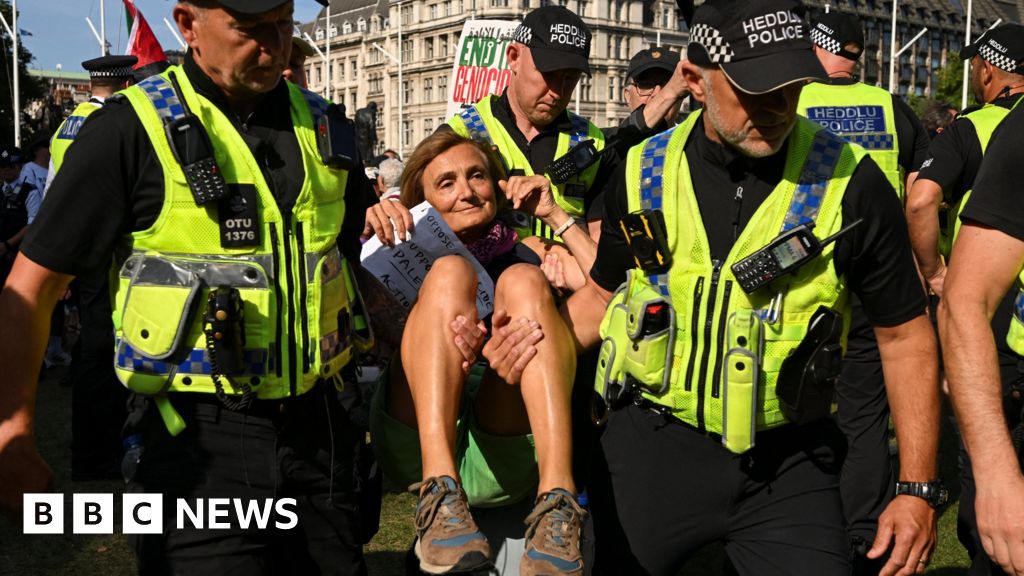CNA Newsroom, May 1, 2025 / 07:30 am
The conclave to elect Pope Francis’ successor will begin on May 7, as the Church enters the final preparatory phase for choosing its 267th pope.
Follow here for live updates of the latest news and information on the papal transition:
 Cardinals participate in the fifth Novendiales Mass for Pope Francis on April 30, 2025, in St. Peter’s Basilica at the Vatican. | Credit: Daniel Ibañez/CNA
Cardinals participate in the fifth Novendiales Mass for Pope Francis on April 30, 2025, in St. Peter’s Basilica at the Vatican. | Credit: Daniel Ibañez/CNA
Members of the College of Cardinals have gathered in Rome in anticipation of the subsequent election of Pope Francis’ successor.
There are currently 252 cardinals, 133 of whom are eligible and expected to vote in the conclave. They range in age from 45 to 99.
But who are they? Read the whole story here.
 Cardinals participate in the fifth Novendiales Mass for Pope Francis on April 30, 2025, in St. Peter’s Basilica at the Vatican. | Credit: Daniel Ibañez/CNA
Cardinals participate in the fifth Novendiales Mass for Pope Francis on April 30, 2025, in St. Peter’s Basilica at the Vatican. | Credit: Daniel Ibañez/CNA
At a time when some postulate that Europe might soon become irrelevant because of the increasing prominence of the Global South — where the Church is growing fastest — it remains, as its institutional and theological center of gravity, a key player in the conclave outcome.
With currently 53 of the 135 voting cardinals coming from Europe — a third of whom are Italians — their collective priorities and concerns will influence not only the choice of the next pope but also the direction of the Church in a rapidly changing world.
It is becoming clear, however, that the European bloc is no longer unified, writes Solène Tadié in the National Catholic Register.
The qualities of a pope go far beyond merely being a kind of CEO of the Catholic Church. At a minimum, he should possess a strong faith and humility, be willing to adhere to the Church’s teachings and apostolic tradition, and personify the Pope’s ancient title as servus servorum Dei, the Servant of the Servants of God.
But he should also possess other exceptional qualities, comments Edward Pentin for the National Catholic Register.
As we prepare for the start of the conclave on May 7, here are several places to be familiar with.
1. Casa Santa Marta
Saint John Paul II designated the Domus Sanctae Marthae as the residence of the cardinal electors during conclaves.
2. Sistine Chapel
It is the seat of the… pic.twitter.com/PJqZaBBCZQ
 Cardinal Gerhard Müller speaking to EWTN News correspondent Rudolf Gehrig in Rome on April 30, 2025 | EWTN News
Cardinal Gerhard Müller speaking to EWTN News correspondent Rudolf Gehrig in Rome on April 30, 2025 | EWTN News
Cardinal Gerhard Müller calls for a deeper, faith-driven approach to overcome factionalism as cardinals prepare for the upcoming papal conclave, reports CNA Deutsch, CNA’s German-language news partner.
The cardinal warns against any “friend and foe thinking” that categorizes people as “for me” or “against me,” calling such division particularly “harmful for the Church, which by its nature is meant to be the sign, the instrument” of communion with God and among people.
Müller, who served as prefect of the Congregation for the Doctrine of the Faith from 2012 to 2017, offers a profound perspective on the concept of “periphery” popularized by Pope Francis.
Warning of an ideological contrast of “center versus periphery,” Müller tells EWTN Germany that the world is a sphere where every person stands equidistant from its core — and that the Eucharist, whether celebrated in the Amazon or St. Peter’s Basilica, remains the same sacred rite, uniting believers worldwide in a shared faith.
As the conclave approaches, speculation grows about who will succeed Pope Francis as the next pope.
One potential candidate is Cardinal Pierbattista Pizzaballa, the Latin patriarch of Jerusalem. A group of young Christians from Palestine, led by Father Firas Abedrabbo, former personal secretary to Pizzaballa, is in Rome originally for the canonization of Blessed Carlo Acutis but instead found themselves present for the pope’s funeral, advocating for Pizzaballa’s election to the papacy.
EWTN Vatican journalist Valentina Di Donato reports from Rome:
The Catholic News Agency (CNA) Staff is a team of journalists dedicated to reporting news concerning the Catholic Church around the world. Our bureaus are located in Washington, D.C., and Rome. We have sister language agencies in Kenya, Germany, Peru, Brazil, and Italy. CNA is a service of EWTN News. You can contact us at news@catholicna.com with questions.
 (1).png)
 3 months ago
171
3 months ago
171


















